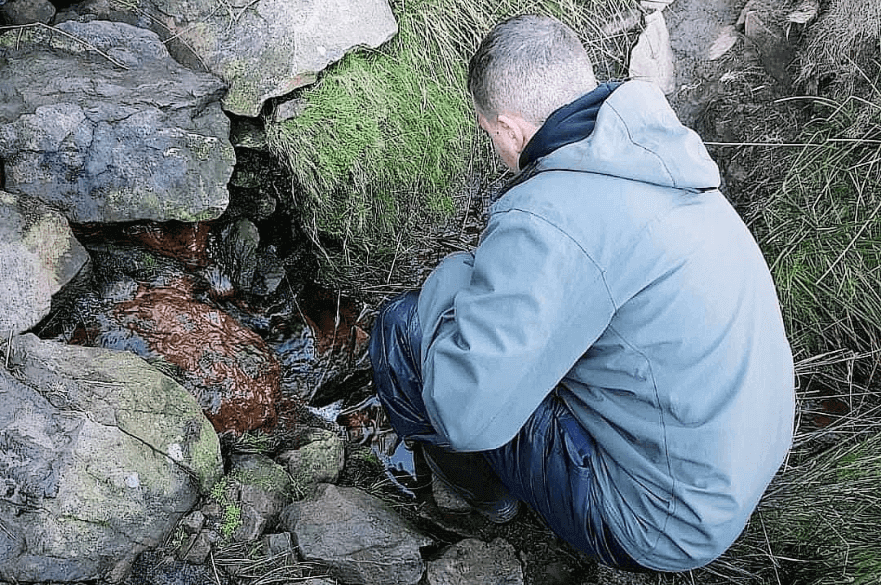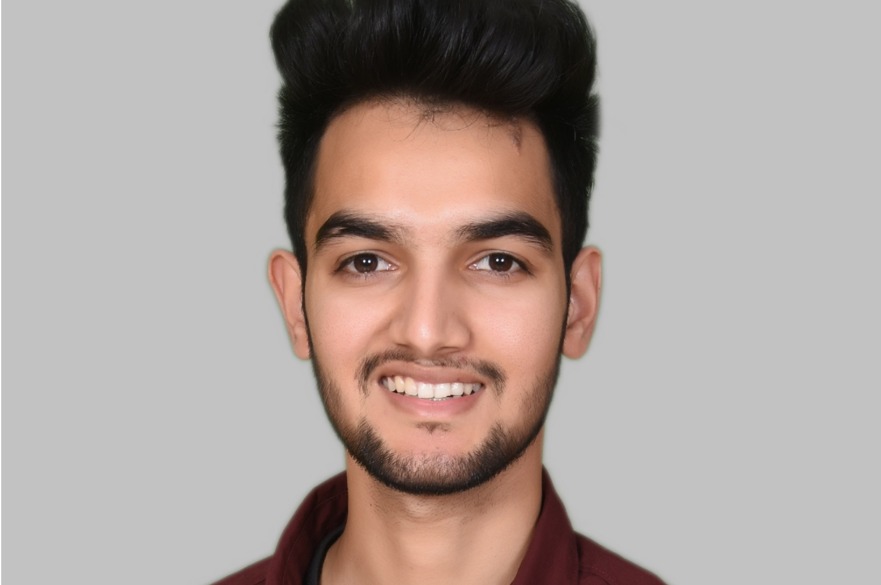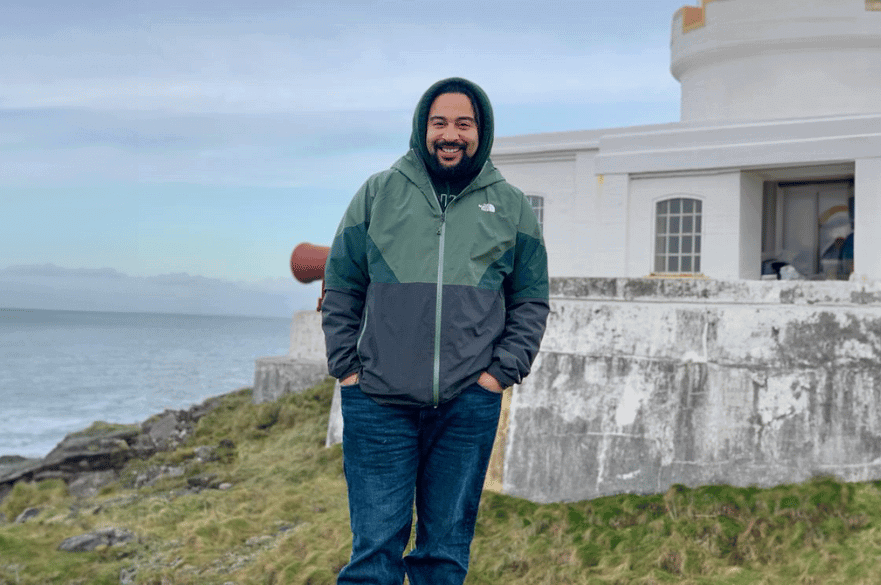
The Employability Team really helped me to get set up for my placement and I still use the advice they gave me throughout all my roles in my career.
More about Semir
Why did you choose to study at NTU?
Initially, my interest in NTU sparked during my time in college, where I became increasingly aware of the urgent need to address the impacts of climate change. This awareness drove me to seek out a degree that focused on understanding and tackling these environmental challenges head-on. NTU's Environmental Science course immediately caught my attention due to its comprehensive and multi-disciplinary curriculum, particularly its modules on natural resource management, environmental monitoring and environmental law. The opportunity to study at Brackenhurst Campus, renowned for its state-of-the-art facilities and picturesque surroundings, further solidified my decision.
What did you learn – both inside and outside of lectures?
One key component that resonated with me throughout my time at NTU was the engaging discussions held in lectures and seminars. These discussions proved invaluable, particularly during modules such as sustainability and natural resource management. We delved into the complexities of geopolitical issues and deepened our understanding of key concepts used in sustainable development and urban development. Alongside this we explored the impacts of climate change but understood the complexities of implementation on regional case studies.
Outside of lectures, another aspect that resonated with me was volunteering and actively participating in the Southwell Flood Forum. Through this experience, I delved into the historical flooding occurrences in Southwell, gaining insights into the profound impacts of flooding and grasping various perspectives on how a community can address these challenges. Additionally, I had the opportunity to apply the knowledge acquired through my studies in Environmental Science and GIS (Geographical Information Science) to aid in monitoring water levels and collecting data throughout the town. Learning this practical application of Environmental Science alongside GIS proved invaluable in understanding how to assess and implement effective mitigation measures.
What have you been up to since graduating? E.g. working in industry, further study, volunteering, research projects etc.
Since graduating from NTU I have gone onto complete my Masters in GIS from the University of Leeds, building up from my experience while on placement working as a GIS Technician at Nm Group. I then moved onto a role with geospatial insight, mapping out damaged buildings from natural disasters around the world. I then progressed onto a role with Appyway assisting in the data handling and digitisation of London’s kerbside, working closely with London boroughs. I am now a Lead GIS Analyst at Benchmark Mineral Intelligence, focusing on monitoring activity using remote sensing techniques for the battery industry. I still try to take part in volunteering, and often visit Nottingham, assisting in GIS projects with the renewal trust, building on my work undertaken during my dissertation identifying field mapping potential for an Allotment site.
What does your current day involve?
As part of Benchmark Mineral Intelligence, a Price Reporting Agency and specialist information provider for the lithium-ion battery to electric vehicle supply chain, my role entails identifying and delivering location intelligence on assets within the supply chain using remote sensing. My day-to-day responsibilities can vary due to working in a dynamic environment, but the main principles of my role involve using satellite imagery and applying principles in remote sensing that I learned during my GIS module at NTU.
What attracted you to this field?
I found that concepts I learned through Environmental Science could be applied in the real world with the tools of GIS. Despite my initial inclination towards a route in computer science, I ended up within the environmental field due to my focus on understanding climate change impacts and mitigation possibilities. However, during my time with NTU, I realised that GIS offers a unique way of applying theoretical knowledge to model, understand, and map out the environment. As I delved deeper into the world of GIS, I discovered vibrant communities and abundant resources for further learning and collaboration. These communities provide platforms for sharing insights, techniques, and solutions, fostering a dynamic exchange of ideas among professionals and enthusiasts alike. Through these interactions, I gained valuable practical skills and expanded my understanding of how GIS can be utilised across various disciplines, from urban planning to conservation efforts. Embracing this intersection of technology and environmental science, I found myself increasingly drawn to exploring innovative applications of GIS, driven by a desire to contribute meaningfully to addressing complex environmental challenges.
What have been the highlights and biggest challenges of your career so far?
One of my greatest challenges was securing a placement role for my year in industry, especially given my limited experience in the environmental field. I found myself competing in a crowded space with other students who had more experience for the roles I was applying for. With the support of the careers team, I persevered, continuously applying for roles until I successfully secured a position with Nm Group as a GIS Technician. This placement success inspired me to pursue my Masters degree and further advance along the Geospatial career trajectory. The highlight of my career has been as a result of initially landing my placement, developing my experience and building an online website (Bozmaps.com). As a result of increasing my presence on LinkedIn and X, I was able to establish myself within the GIS space which eventually led me to being headhunted for the current role I have.
What are your plans for the future?
My long-term plan is to establish my own Geospatial Consultancy. However, at present, my primary focus is on further developing the skills that I regularly use in my day-to-day projects. By honing these abilities and gaining valuable experience, I aim to lay a solid foundation for achieving my ultimate career goal.
If you had a time machine, what would you go back and tell yourself at NTU
To dedicate additional time to understanding the global perspective and how the concepts covered in lectures can be applied or are currently being applied in real-world situations worldwide. Additionally, actively pursue opportunities to apply your knowledge in practical settings through internships, research endeavours, or involvement in extracurricular activities. Learning extends beyond absorbing information in lectures; it also involves acquiring practical experience and cultivating critical thinking skills essential for navigating future challenges and opportunities. The Employability Team really helped me to get set up for my placement and I still use the advice they gave me throughout all my roles in my career. Interview practice and advice really helped me get set up for my year in industry interviews.
Finally, is there anything else you’d like to share with our student and alumni community?
Finally, I'd like to emphasise the importance of conferences and networking opportunities in the field of remote sensing. These events provide invaluable platforms to stay updated on the latest advancements, trends, and breakthroughs in remote sensing technology and applications. By actively participating in conferences and engaging with professionals and researchers in the field, you can gain insights into the skills sought after by companies, the emerging areas of research, and the practical applications of remote sensing in various industries. Networking also opens doors to potential collaborations, career opportunities, and mentorship, enabling you to further enhance your knowledge and expertise in remote sensing. Therefore, I highly encourage you to take advantage of these opportunities to expand your understanding and connections within the remote sensing community.
Still need help?
-

STUDENT PROFILE
Ajay Tegala
Ecology and ConservationUnited Kingdom
https://www.ntu.ac.uk/study-and-courses/courses/our-students-stories/animal-rural-environmental-sciences/ajay-tegala
-

STUDENT PROFILE
Ajay Uniyal
Food Science and TechnologyIndia
https://www.ntu.ac.uk/study-and-courses/courses/our-students-stories/animal-rural-environmental-sciences/ajay-uniyal
-

STUDENT PROFILE
Bejohn Quigley
Ecology and ConservationUnited Kingdom
https://www.ntu.ac.uk/study-and-courses/courses/our-students-stories/animal-rural-environmental-sciences/bejohn-quigley